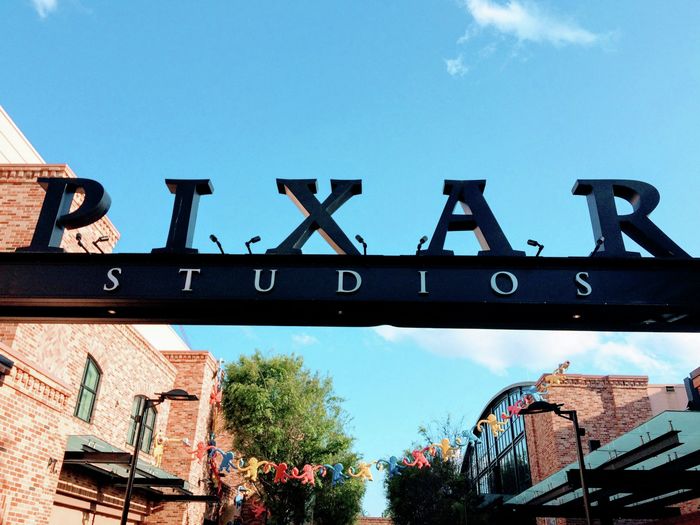The Disney live action epidemic: should we care so much?
Lou Holden examines why older audiences are so critical of live adaptation remakes, particularly with the upcoming Snow White

On account of the emergence of the ‘Disney adult’, we are beginning to see live action Disney remakes intended to satisfy mature audiences. Yet this seemingly comes at the cost of valuable representation. Mature audiences come accompanied by a cultural discourse that, due to their predominantly younger viewers, Disney rarely contends with. In turn this gives them a unique influence over the production of these films, which limits representation in favour of maintaining audience satisfaction.
While we can see that Disney are attempting to imbue more diversity within their releases, so far, their preferred method has been introducing representation by replacing previously white characters. Though the main issue with this should be how artificial this representation appears, it seems as though cultural discourses suggest that the real problem lies in the modification of the original stories. We see this with both the live action Aladdin and the Little Mermaid, which feature this tactic of insincerely inserting representation. But what these films show most importantly, is how some of these swaps are accepted when the character that is switched is deemed to be the right one by viewers.
“due to the nature of Disney princesses being intended as aspirational figures, they face heightened inquiry by audiences”
The public conversation surrounding the 2019 live action Aladdin, was dominated by the concern that Will Smith would be unable to fill the shoes of the much loved, and now posthumously sanctified Robin Williams – rather than focusing on any issues of representation. This could not be further from the outrage that Halle Bailey faced after her appearance in the Little Mermaid (2023) film, as she was criticised for failing to conform to the aesthetic expectations established in the original depiction. With this in mind, it would be fair to say that due to the nature of Disney princesses being intended as aspirational figures, they face heightened inquiry by audiences, either owing to prejudice or a subconscious desire to protect their childhood heroines.
Therefore, aside from the racial prejudices, which are undeniably present, mature Disney audiences that anticipate remakes of their favourite childhood stories, want the films exactly as they were – often without any consideration of the potential disadvantages of creating an exact copy. In satisfying mature audience expectations, Disney risks harming the diversity of characters intended for younger, more impressionable audiences, who need more cultural representation.
“wistful reminiscence… should not come at the detriment of current or future audiences being able to connect with the character themselves”
This is absolutely seen with the upcoming Snow White film, which despite being armed with the indisputably progressive writer Greta Gerwig, was still unable to become a more modern depiction of the traditional tale. Audiences strongly resisted any potential differences, especially when the princess herself, Rachel Zegler, branded the film a ‘PC Snow-White’. This came in reference to the ‘magical creatures’ that were set to replace the seven dwarfs. Though welcoming this change would have avoided any possible harmful stereotypes that may have materialised as a result of directly copying a film that is over 85 years old, it was instead met with criticism and contempt. Once more a yearning for an exact replica of the original film overpowered any consideration of the benefits of increasing representation for younger audiences, who are likely unfamiliar with the limitations of the original.
Last October, Disney announced that the release of Snow-White would be delayed due to reshoots. Whilst at present it is unknown how exactly the reshoots will absorb the opinions of these mature online conversations, it is certain that the influence of the most vocal groups will be taken into account. Already the ‘magical creatures’ have been replaced by CGI Dwarfs, which exemplifies the extent to which these online discourses have managed to, at least in part, pressure their way into enforcing nostalgia.
Mature Disney audiences who believe that they are entitled to comment and guide the production of the live action remakes, possess potentially harmful influences over any improvements for representation. Whilst it is completely understandable to want to preserve the perceived impeccability of your favourite childhood film, it already exists in its perfect nostalgic form available for you to access, without hindering representation for future audiences. Allowing younger audiences an avenue into these much-loved tales, but with the added benefits of more progressive, accepting social values and representations, could only be a good thing. Instead, we must ask ourselves whether as a society, should we have outgrown this connection to fairytales of underrepresentation? And are we so attached to the nostalgia of our younger selves that we cannot accept change even when in aid of diversity?
It seems to me that while the wistful reminiscence of the fairytales we enjoyed so much as children allows us to connect with our younger selves, it cannot and should not come at the detriment of current or future audiences being able to connect with characters themselves.
 News / Cambridge student numbers fall amid nationwide decline14 April 2025
News / Cambridge student numbers fall amid nationwide decline14 April 2025 News / First candidate to announce chancellorship bid pledges to tackle bullying 12 April 2025
News / First candidate to announce chancellorship bid pledges to tackle bullying 12 April 2025 Lifestyle / First year, take two: returning after intermission14 April 2025
Lifestyle / First year, take two: returning after intermission14 April 2025 News / Rowing row continues as Oxford and Cambridge scrap women’s trial race9 April 2025
News / Rowing row continues as Oxford and Cambridge scrap women’s trial race9 April 2025 News / PETA urges Cambridge dictionary to change ‘derogatory’ rat definition11 April 2025
News / PETA urges Cambridge dictionary to change ‘derogatory’ rat definition11 April 2025




